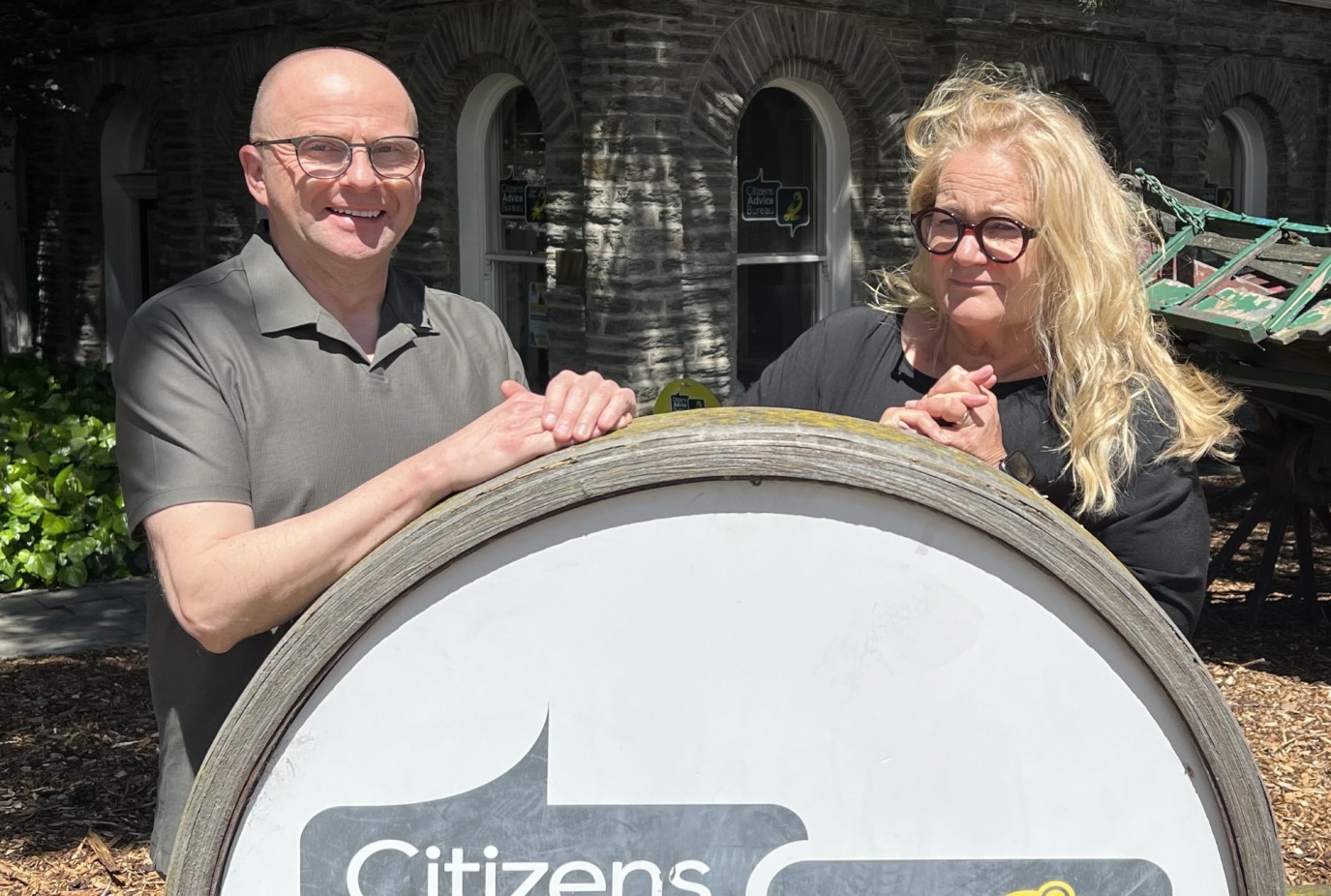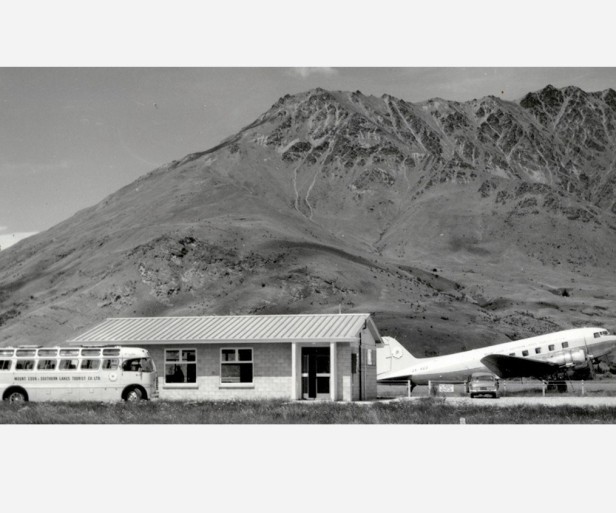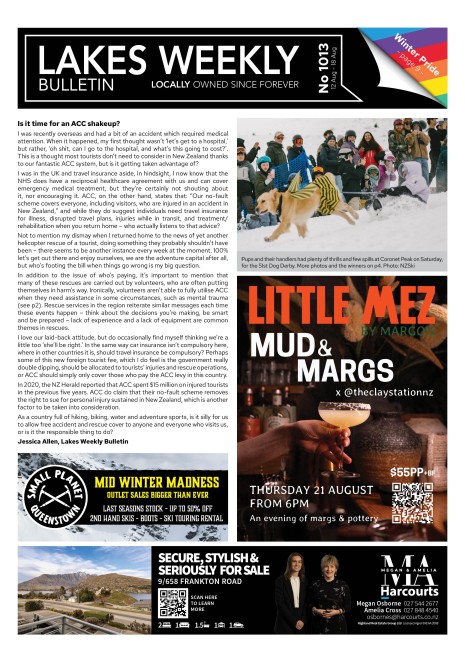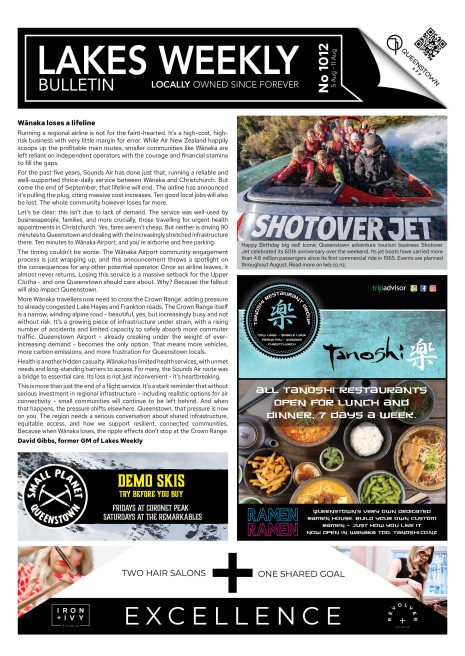Visa workers crisis - CAB under immense pressure

Queenstown Citizens Advice Bureau has seen a 44% jump in workload from overseas visa workers facing everything from exploitation to massive visa processing delays with no income due to impractical and unworkable immigration rules, says manager Tracy Pool.
“We don’t see these people until they’re desperate, but the Accredited Employer Visa regulations need an urgent overhaul,” Pool says.
The way the process works currently a worker may have to wait three months to change employers when they’re already an accredited employee and have another job waiting. It’s crazy,” she says. “The system is wrong if we have to spend that much time helping visa workers who can’t afford to seek help.”
It's putting enormous pressure on the migrant workers as well as employers who need the staff when accredited staff are ready and waiting to be sponsored but INZ red tape won’t allow them to work. It’s also costing Accredited Employers, who are already squeezed tight for costs and having to pay unqualified, junior Accredited Employer Visa holders $29.66 an hour, which is significantly above the average wage rates for the jobs they’re doing.
“Kiwis won’t come here but those who do usually get between $24 and $27 an hour for the same jobs,” Pool says.
“We’ve had some cases of people stuck in limbo without income for up to three months while approvals are being processed, living in cars, relying on local food banks to get by."
In one recent case CAB wrote to INZ asking for help on “humanitarian grounds” as one worker would’ve literally been “living on the streets”. “Our employee advocate is handling 12 cases at present. She eventually got money out of this man’s former employer to help him, but it was a major case. The worst we’ve seen.”
Pool is calling for Immigration New Zealand to use Queenstown as a “trial bubble” and appoint an independent body like CAB to assist desperate visa workers, mostly non-English speaking, trying to battle their way through confusing bureaucratic hoops. This body would act as an independent advocate and advisor for the overseas workers. “Until we get that nothing will change,” she says. CAB has also seen an unprecedented number of exploited migrant worker cases in recent months all because the workers have no idea what their rights are, she says.
Local hospitality employers who are Accredited Employers say the requirements are putting huge pressure on their businesses having to fork out a minimum of $29.66 an hour for unqualified staff just to fill jobs.
Hospitality NZ accommodation sector chairperson Caryln Topp says it makes no sense having to pay so much more to accredited workers with no experience. “It’s a minefield getting your head around the bureaucracy,” she says. “Working holiday visa holders can only work for one employer for three months too and then must move on. You’ve spent a month training them, you get two good months, and they go to a different employer.”
She’s signed up almost 100 employees on contract in the past year who’ve then said, ‘no’, because another employer’s offered them more. It’s too expensive to fight that through a lawyer. One flooring company has signed up 75 in similar circumstances in the past year.
Future Hospitality’s Bert Haines says the Accredited Employer Scheme higher pay rates are “a massive issue” for his seven bars.
“INZ has created an artificial, inflated minimum wage that just drives down other wages to keep your business operating. We’ve had people wanting to get sponsored under the scheme, almost embarrassed to ask as they know that rate isn’t deserved (as per their experience) and they’ll be clipping off their workmates,” Haines says.
Another long-time bar owner is grappling with replacing a lot of long-term experienced staff and will need between 12 and 16 staff for peak summer. “It’s been a really hard three years and businesses are squeezed more than ever. We’re losing awesome senior people, some heading back overseas. For others, it’s too hard to find housing and settle here with the cost of living.” He’s also battling visa issues. “We’re trying to sponsor people but it’s immensely expensive and difficult.”
Another multiple bar owner agrees housing is a major issue. “There are more coming through but not with experience and it’s a struggle to keep them around. Most end up heading to Mount Maunganui where accommodation is cheaper,” she says.
Accredited Employer median wage set to jump to $31.61
The NZ Immigration median wage for Accredited Employers is set to jump to $31.61, in February, from the current rate of $29.66 an hour.
Immigration NZ’s director visa Sarah Clifford says however this is at the discretion of the incoming Government.
No accredited employer can hire a migrant worker below the median wage, unless they are working in specific sectors, where there are sector agreements or wage exemptions in place.
INZ has changed its Accredited Employer Work Visa assessment approach, requesting more information from employers, including whether they can support the migrants they plan to hire, she says.
Most applications are now taking significantly longer than 10 days to process.
“As a result, we’re experiencing an increase in processing times for the employer accreditation and job check phases of the AEWV.” INZ is recommending employers now allow at least six weeks to apply for an accreditation and a further six weeks to apply for a job check with current processing times.
“We are working to improve these (timeframes).”
Any decision to change the Accredited Employer Work Visa or Partner of a Worker Visa policies would be a matter for the incoming Government.
Workers are encouraged to report any exploitation through Employment New Zealand’s online reporting form or the dedicated 0800 number (0800 20 00 88). If exploited, they can access a 6-month Migrant Exploitation Protection Visa (MEPV) that allows them to quickly leave an employer who is exploiting them and remain lawfully in New Zealand while there is an investigation into the exploitation. Information about what your employer’s obligations are and your rights as a migrant worker can be found at the links below. This information is available in seven different languages.
Meeting your AEWV accredited employer obligations
Immigration New Zealand, Minimum rights of employees » Employment New Zealand
From camping in car to “miracle” apartment
Argentinian trainee hotel assistant Alexis Gomez and his partner Victor Ruarte were forced to camp and live in their car at Twelve Mile last summer due to Ruarte visa delays.
Fortunately, Gomez had started work at Eichardt’s, but his partner waited from 15 December until early April this year with no income while his Accredited Employer Visa was approved. CAB was a great help, he says.
After a month they found a shared room in a hostel and after 30 rejections eventually rented a one-bedroom Frankton apartment. “It’s a miracle.”
Alexis and Victor, homeless no more
Alexis and Victor camped out in their car for some time while searching for accommodation and sorting visa issues











